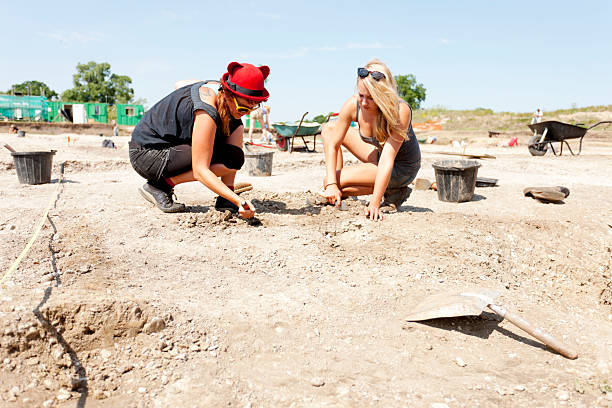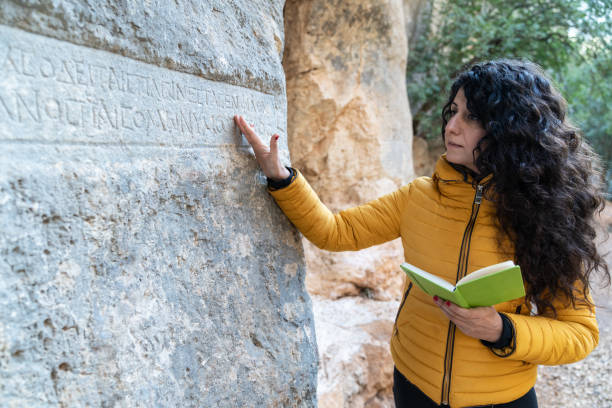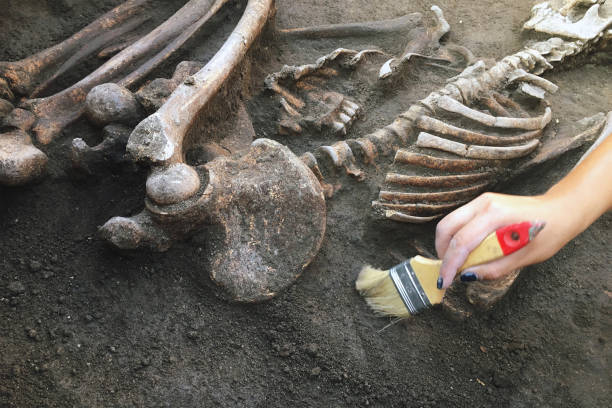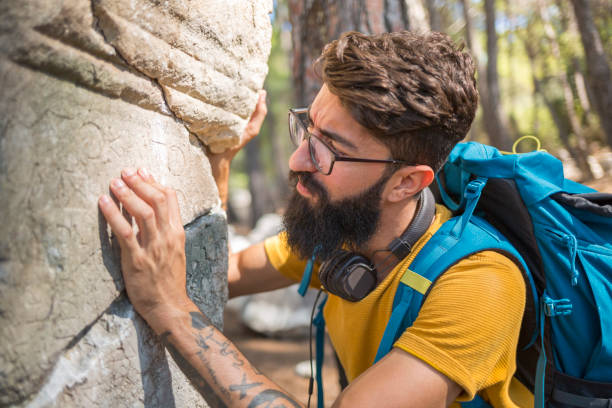How to Become an Archaeologist.Archaeology is an intriguing field to pursue. However, contrary to what a certain Indiana Jones might have you believe, archaeologists do not spend their time searching for lost treasures and evading dangerous snake traps.
Archaeologists do work on excavation sites in various parts of the world, but their primary objective is to discover, examine, and analyze the cultures of prehistoric humans through artifacts and physical remains.
If you have a sense of adventure, a passion for research, and an insatiable interest in human history and ancient civilizations, this could be the ideal career path for you.
If you are determined to learn How to Become an Archaeologist, these steps can help you get started.
List of the tips on How to Become an Archaeologist
The following is a list pf the tips on How to Become an Archaeologist:
1. Explore Your Options

As a prospective archaeologist who wish to learn How to Become an Archaeologist, you should familiarize yourself with this immensely fascinating field. It is crucial to familiarize yourself with an archaeologist’s daily activities, especially if your only point of reference is the Indiana Jones films!
You could begin by visiting local museums, taking guided tours of ancient locations, or attending archaeological events, seminars, or conferences. If you discover that you are genuinely interested in this topic, you might then consider joining local groups or organizations.
The more you investigate the area of archaeology, the easier it will be for you to build meaningful connections with like-minded people and gain practical experience!
2. Seek Out Volunteering Opportunities
Speaking about hands-on experience, volunteering is another fantastic way to get engaged in archaeology. You will physically get your hands filthy and gain valuable fieldwork experience, which could also look excellent on your resume.
As an aspiring archaeologist, you have access to a wealth of possibilities to get essential experience. The simplest method to accomplish this is to look for volunteer opportunities with local archaeology projects or historical society. You may also find volunteer opportunities with national organizations, colleges, and universities.
If you wish to take the next step, applying for internships is also a fantastic idea, as you will be able to work directly with seasoned scholars and researchers while honing your practical and professional abilities.
From the excavation process through artifact preservation and project planning, you will have the opportunity to increase your skill set and acquire vital archaeology information. However, fieldwork is not the only type of volunteer activity available. In addition, you could write for archaeology blogs and journals, organize events, and even edit newsletters!
The American Museum of Natural History, the Council for British Archaeology, and the Center for American Archaeology are only a few of the major organizations, museums, and research centers that provide volunteer and internship opportunities.However, it is another tips on How to Become an Archaeologist.
3. Establish a Social Network

Regardless of the shape that work experience and volunteering take, the opportunity to create a network of contacts is a vital benefit. Indeed, establishing long-lasting relationships with industry professionals, researchers, and academics will serve you well in the future.
Archaeology is a highly competitive industry, so in addition to your experience and enthusiasm for the area, you’ll need a solid list of references and contacts that can guide you in the direction of work!
Seize the opportunity to network with your peers, whether it’s at a lecture, an event, or a volunteer position, and spend some time cultivating these ties!
4. Utilize Educational Resources
Another way on How to Become an Archaeologist is utilizing educational resourses. Archaeologists are inherently inquisitive and interested persons who are constantly seeking knowledge. No matter where you are in your archaeological career, there are several learning materials available to assist you refresh your knowledge and stay abreast of new findings and discoveries.
You may, for instance, subscribe to archaeological periodicals, read online blogs, watch engaging films, or listen to podcasts. Not only are these resources easily accessible, you can also learn a great deal from them, particularly if you’re a beginner.
You may also enroll in training programs offered by universities, organizations, and groups. If you are a member of a regional or national archaeology organization, you can participate in various events, talks, and lectures. These will assist you in expanding your knowledge as a future archaeologist.
5. Prepare Your Next Moves
As you gain more expertise on How to Become an Archaeologist, you will inevitably need to determine your next move.
As previously said, archaeology can be a difficult field to enter due to its limited employment opportunities, substantial training requirements, and relatively low pay margin. In contrast, it is an interesting way to earn a living. So, as you spend more time in this sector, you will need to decide whether you want to follow it full-time and turn it into a career, or whether it is only a hobby you can enjoy on the side.
It is essential that you analyze all relevant criteria and consider any additional goals you may have. You may also like to investigate related fields, such as palaeontology or anthropology, to determine which subjects you are interested in pursuing.
6. Become a trained archaeologist
Inevitably, in order to learn How to Become an Archaeologist, you will require formal training and credentials. First, get a bachelor’s degree in a relevant field, such as history, anthropology, sociology, or, of course, archaeology. As it shares common ground with a number of other sciences, you may potentially seek degrees in biology, geography, or botany.
You can then train as a graduate archaeologist or pursue other credentials such as a master’s degree and a doctorate. Indeed, as most employment positions in archaeology or anthropology require a postgraduate degree, you will have access to a larger market in your sector. Undoubtedly, the greater your knowledge and skill, the greater your chances of securing a steady position.
Heritage managers, principal investigators, education officers, collection curators, and archivists are just a few of the diverse career options available. However, the majority of beginning archaeologists begin their careers as field assistants. You may also be eligible for other junior positions, such as research assistant, lab technician, or site excavation technician, depending on your skills and experience.
7. Determine Your Particular Interests

Archaeology is a field with several facets. Archaeologists spend their days researching and studying ancient civilizations from various time periods. Their work includes the recovery of artifacts, the examination of archives, and the study of monuments and landscapes in order to discover past human societies. And while some opt to conduct their study in the field, others perform their studies in laboratories and offices.
As you obtain more information and experience in the field, you will also build specialized abilities and hone your competence as a professional archaeologist, as well as learn the topics you are most interested in. You may, for instance, improve your knowledge of specific eras, create your own research methodology, or concentrate on a particular sort of archaeology, such as ethnoarchaeology, bioarchaeology, or heritage management.
8. Sharpen Your Skills
As you progress through the many stages of your profession, you must maintain your archaeology-related and non-archaeology-related abilities. Professional growth is a crucial part of every career and is critical for gaining access to new employment prospects.
For instance, you might hone your talents using related tools and credentials, such as computer-aided design (CAD) software, illustration, geographical information systems (GIS), global positioning systems (GPS), and satellite images.
You could also join approved professional organizations such as the Register of Professional Archaeologists in the United States and the Chartered Institute of Archaeologists in the United Kingdom. These memberships will demonstrate your commitment to advancing your career and will be excellent additions to your resume.
You could also join approved professional organizations such as the Register of Professional Archaeologists in the United States and the Chartered Institute of Archaeologists in the United Kingdom. These memberships will demonstrate your commitment to advancing your career and will be excellent additions to your resume.
9. Keep Going

Archaeology is a challenging field to enter due to a dearth of employment opportunities. Nonetheless, there is still hope! In reality, the Bureau of Labor Statistics of the United States projects a 10% increase in employment by 2028.
Even though the competition is still tough, you should not throw in the towel and give up. If you’re serious about pursuing a career in archaeology, you’ll need to become a lot more resilient; the lifestyle of an archaeologist includes the occasional uncertainty that you may face in the shape of a rejected job application or a research grant. Ultimately, if you are genuinely enthusiastic about your career, nothing will stand in your way.
FAQs On How to Become an Archaeologist
Is archeology a good career?
“Archaeology is an employment growth area, and this is likely to continue. The rapid expansion of the cultural heritage management industry over the last three decades has created demand in the private sector for graduates with archaeological skills.”
How hard is it to be a archaeologist?
An archeologist requires a master's degree or PhD in archeology. They would normally do field work for 12-30 months while obtaining a PhD and many master's degrees may also require field work hours as well. Experience in some form of archaeological field work is usually expected, by employers.
Can archaeologists make money?
The best-paid 25 percent made $84,560 that year, while the lowest-paid 25 percent made $51,170.
Is Archeology in high demand?
Employment of anthropologists and archeologists is projected to grow 6 percent from 2021 to 2031, about as fast as the average for all occupations.
See also
- How to become a Music Promoter: 7 Duties, Salary & Benefits
- Biological Technicians: Job duties, Salary and how to become one
- How To Become A Bitcoin Miner In 2023 | A Guide…
- How to become a learning disability specialist in 2022
- How to Become an Optometrist
- How to become a CRNA: Salary, Duties & Work Environment

